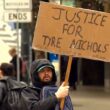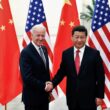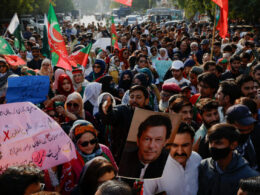By Serge Jordan, International Socialist Alternative
The scenes of the lives shattered by yesterday’s earthquakes in Turkey, Syria and Kurdistan are painful to watch. I was in Turkey in the summer of 1999, just 40km away from the epicenter of the last similarly huge earthquake that hit that country. I was 16 at the time and the disturbing memories of the long lines of dead bodies laid on the floor, of entire towns and villages flattened to the ground, and of the overwhelming smell of human death everywhere, have never left me since.
It became obvious that the country’s building regulations and practices (such as mixing sea sand with concrete), suited to maximize the profits of the gangsters running the construction industry, and the unbridled corruption that had mushroomed in the sector as a result, had been central factors in the making of this disaster. The dreadfully inadequate response of the then Turkish government was an important factor in the subsequent rise of the AKP and of Erdoğan’s brand of politics, who promised change and prosperity to the people of Turkey, and also vowed to implement changes to the country’s building standards.
After two decades of AKP rule, it is clear that very little has changed. Yesterday’s earthquakes have exposed everything that is rotten in the construction and infrastructure craze that had been such a vaunted engine of Turkish growth for years. Despite years of repeated warnings by scientists and experts, any serious move towards better earthquake preparedness has been sacrificed on the altar of private profit for a few top business allies of the ruling party. Helped by generous tax incentives, and tender-rigging and corruption on an institutionalized scale, the few construction moguls close to Erdoğan’s regime have made billions and billions by systematically cutting corners on both people’s safety and workers’ conditions. And now millions of poor people have to re-live the same, totally preventable scenes of large-scale desolation and death. The shares of cement companies, meanwhile, have sharply risen at the Istanbul stock exchange, as the vultures are already circling to make a killing of the disaster.
The latter is no more “natural” than the one that took place 24 years ago, and than all the smaller ones that have occurred in between. The means, technique and science necessary to build earthquake-resistant cities and buildings exist, but the logic of capitalism stands in the way of actually using them, because gambling on human lives is way more profitable.
The current calls to “not politicize” the earthquakes reflect both the cynicism and the fear of the ruling elite that the deep-rooted rage of the masses start to explode onto the scene just a few months away from critical elections. In fact, the heart-warming working class solidarity that is being forged in this critical moment of despair could precisely lay the basis for the building of a movement that can bring all the high-end criminals responsible for this catastrophe to account, end the rule of the AKP that has presided over it, put the major construction conglomerates under public ownership, and eventually fight for a socialist system whereby people’s lives, right to safety, housing etc are firmly put in the driving seat.












